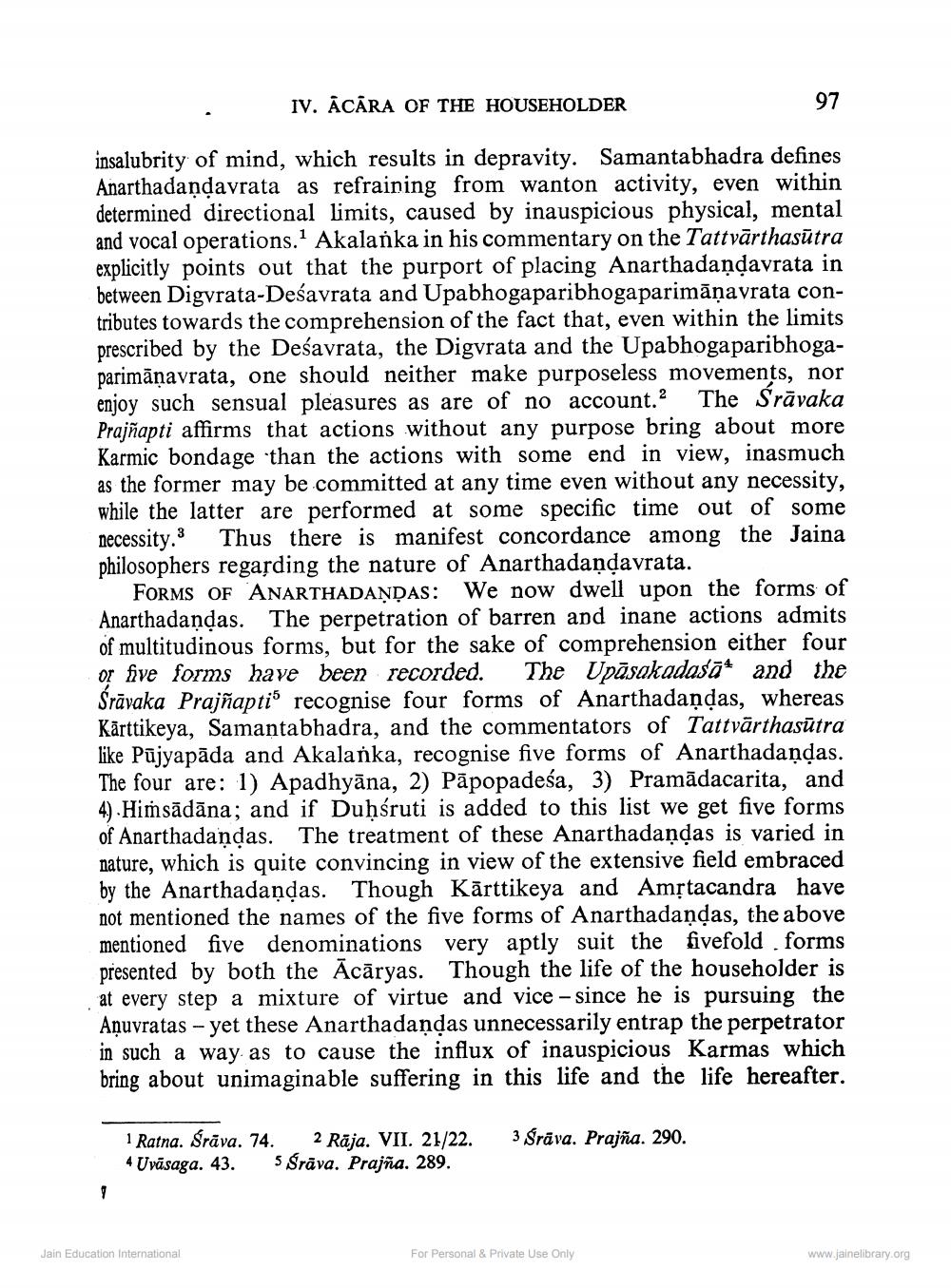________________
IV. ACARA OF THE HOUSEHOLDER
97
insalubrity of mind, which results in depravity. Samantabhadra defines Anarthadaņdavrata as refraining from wanton activity, even within determined directional limits, caused by inauspicious physical, mental and vocal operations. Akalanka in his commentary on the Tattvārthasūtra explicitly points out that the purport of placing Anarthadaņdavrata in between Digvrata-Deśavrata and Upabhogaparibhogaparimāņavrata contributes towards the comprehension of the fact that, even within the limits prescribed by the Deśavrata, the Digvrata and the Upabhogaparibhogaparimānavrata, one should neither make purposeless movements, nor enjoy such sensual pleasures as are of no account. The Srāvaka Prajñapti affirms that actions without any purpose bring about more Karmic bondage than the actions with some end in view, inasmuch as the former may be committed at any time even without any necessity, while the latter are performed at some specific time out of some necessity. Thus there is manifest concordance among the Jaina philosophers regarding the nature of Anarthadaņdavrata.
FORMS OF ANARTHADANDAS: We now dwell upon the forms of Anarthadandas. The perpetration of barren and inane actions admits of multitudinous forms, but for the sake of comprehension either four of five forms have been recorded. The Upāsakadasā* and the Śrāvaka Prajñapti” recognise four forms of Anarthadaņdas, whereas Kārttikeya, Samantabhadra, and the commentators of Tattvārthasūtra like Pujyapāda and Akalanka, recognise five forms of Anarthadandas. The four are: 1) Apadhyāna, 2) Pāpopadeśa, 3) Pramādacarita, and 4) Himsādāna; and if Duhśruti is added to this list we get five forms of Anarthadaņdas. The treatment of these Anarthadaņdas is varied in nature, which is quite convincing in view of the extensive field embraced by the Anarthadandas. Though Kārttikeya and Amộtacandra have not mentioned the names of the five forms of Anarthadandas, the above mentioned five denominations very aptly suit the fivefold forms presented by both the Acāryas. Though the life of the householder is at every step a mixture of virtue and vice - since he is pursuing the Aņuvratas - yet these Anarthadandas unnecessarily entrap the perpetrator in such a way as to cause the influx of inauspicious Karmas which bring about unimaginable suffering in this life and the life hereafter.
3 Śrāva. Prajña. 290.
1 Ratna. Śrāva. 74. 2 Rāja. VII. 21/22. 4 Uvāsaga. 43. 5 Srāva. Prajña. 289.
Jain Education International
For Personal & Private Use Only
www.jainelibrary.org




